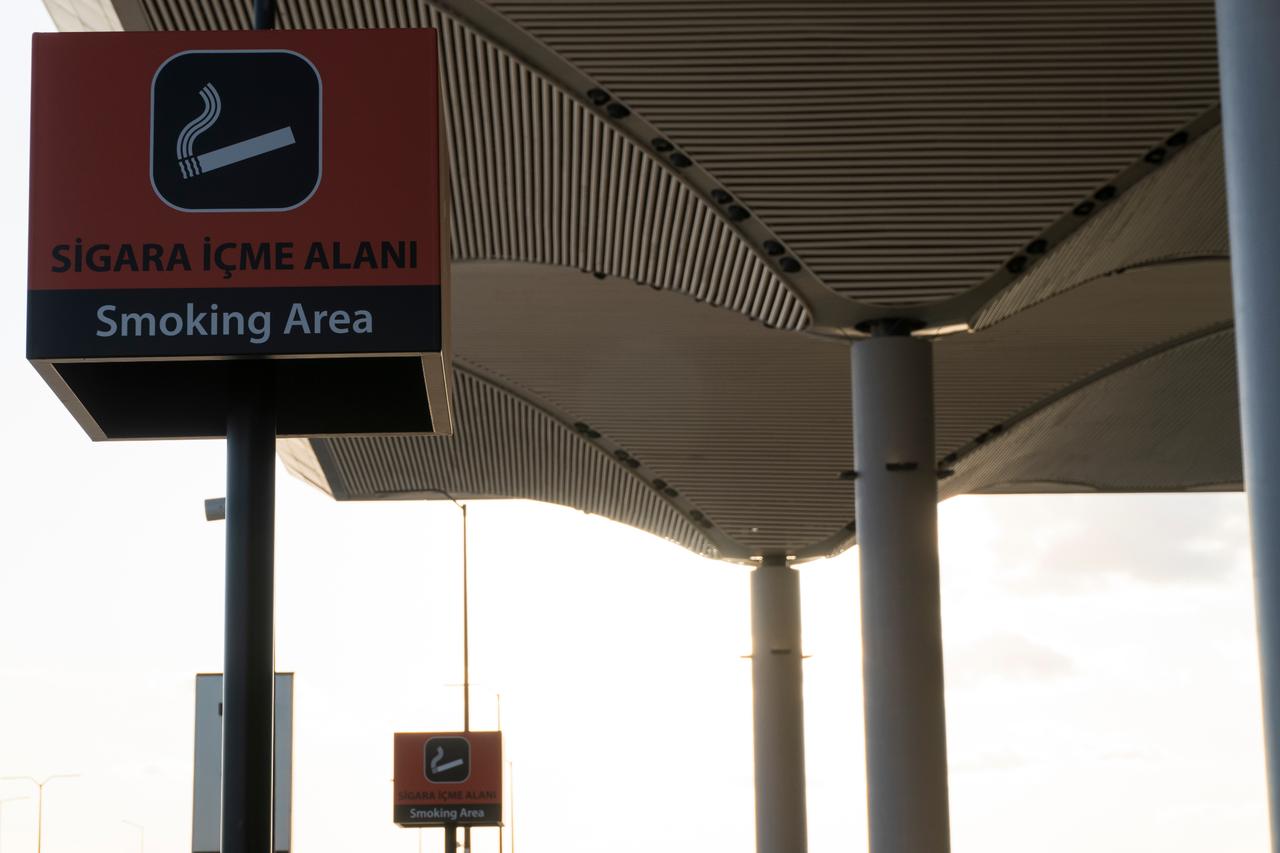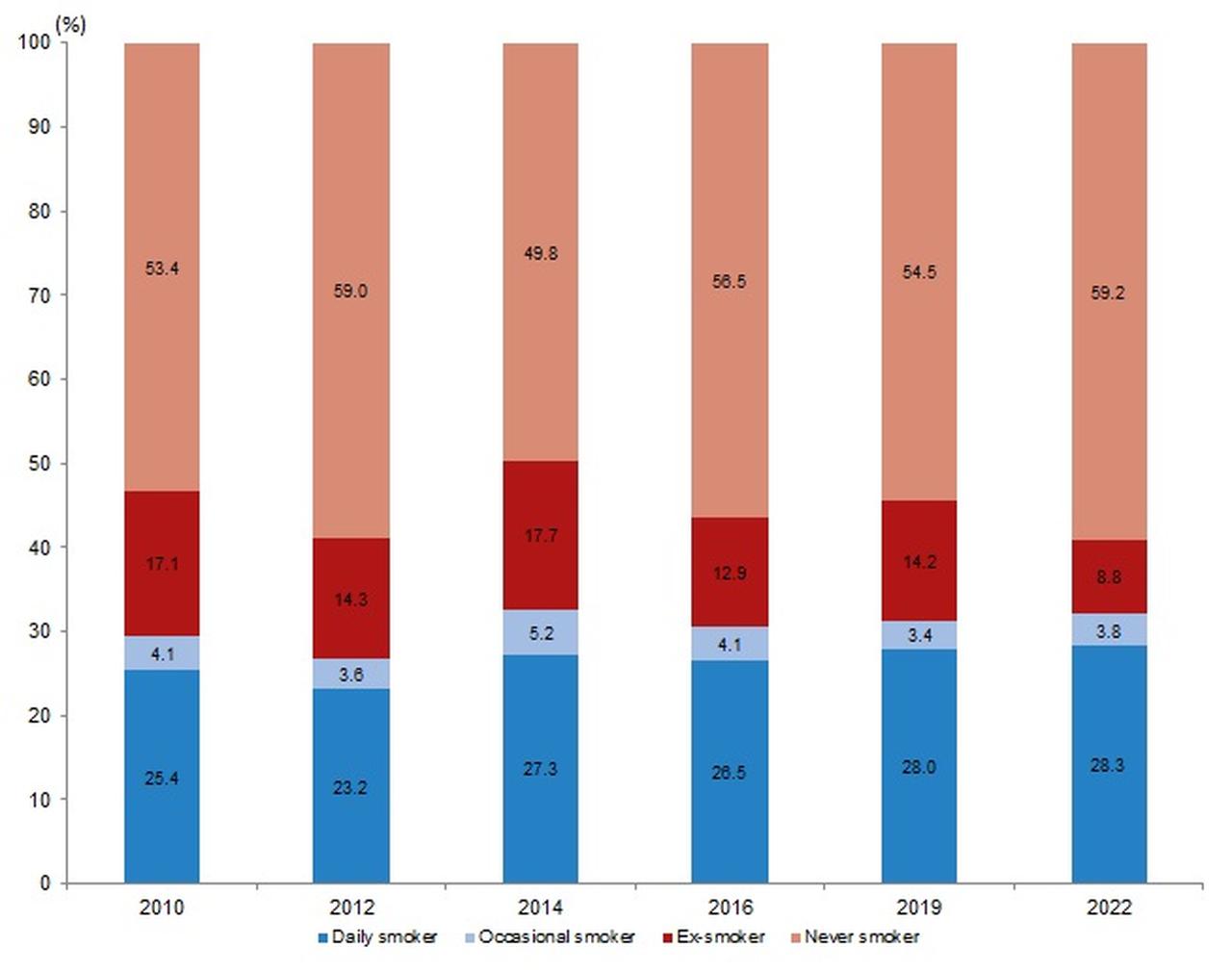
Türkiye’s smokers spent an estimated ₺260 billion ($6.38 billion) on cigarettes in the first six months of 2025, according to calculations based on central government budget figures, with more than 19 million people in the country smoking daily.
Based on prices as of August 12, total spending on cigarettes in Türkiye is forecast to reach ₺649.44 billion ($16.17 billion) for the year.
Government data shows that ₺184.13 billion ($4.52 billion) of this amount was collected as special consumption tax (SCT), making tobacco one of the largest sources of indirect tax revenue.
The ₺184.13 billion ($4.52 billion) collected from cigarette sales in the first half of 2025 accounted for 3.91% of Türkiye’s total tax revenues of ₺4.71 trillion ($117.33 billion) during the same period. This underscores the substantial fiscal role tobacco plays in the country’s public finances.
Within the special consumption tax (SCT) framework, tobacco products accounted for 21.85% of total SCT revenues, ranking third among all taxable product categories. The SCT, an indirect tax applied to specific goods such as fuel, motor vehicles, and alcohol, generated ₺4.71 trillion in the first six months of the year, representing 17.6% of the government’s total revenues.
Tobacco-related SCT revenues have grown sharply year-on-year, as compared with the first half of 2024, collections increased by 45.12%, rising from ₺126.88 billion.

Looking ahead, the government’s 2025 budget projects cigarette and tobacco SCT revenues to reach ₺455.65 billion ($11.34 billion) by year-end, up from ₺309.25 billion ($8.73 billion) in 2024. The target represents a planned annual increase of 47.35% as smoking prevalence still remains high despite public health campaigns, price deterrents.
Despite the size of the cigarette market, only ₺13.2 billion ($328 million) of the ₺262.3 billion spent in the first half of 2025 reached cigarette manufacturers, with the remainder collected in taxes. Based on official SCT figures, the total tobacco market is projected to receive just ₺85.53 billion ($2.13 billion) in 2025.
Industry sources say that Türkiye’s steep tax burden on cigarettes has fueled illicit trade, cutting into government revenues. Untaxed cigarette sales led to an estimated ₺122 billion ($3.03 billion) tax loss in 2024, sector representatives told business-focused bigpara.hurriyet.com.tr.

In Türkiye, 86.8% of the retail price of a cigarette pack is tax, according to calculations by Türkiye Today. By comparison, in the European Union (EU), the share is estimated at around 77%.
According to the World Health Organization, raising taxes on tobacco products is among the most effective measures to reduce tobacco consumption, particularly among price-sensitive groups such as young people and low-income populations. The WHO notes that a price increase of 10% on tobacco products typically reduces consumption by about 4% in high-income countries and by up to 5% in low- and middle-income countries.
In its July publication outlining a proposal to raise taxation rates on tobacco products, the European Commission emphasized the role fiscal policy has played in reducing tobacco use. Over the past decade, higher taxes have been one of the most effective tools in curbing smoking prevalence across the European Union, with an estimated 40% of the decline in consumption directly attributed to tax increases. The measures have contributed not only to public health objectives but also to substantial tax revenues for member states.
However, despite the tougher levies in Türkiye, smoking rates remain high. TurkStat’s latest Health Survey in 2022 shows that 28.3% of the population aged 15 and over reported smoking daily, which amounts to more than 19 million people nationwide.

The survey also reveals a marked gender disparity in smoking habits. Among men, prevalence reached 41.3%, meaning that roughly two out of every five men are daily smokers. In contrast, 15.5% of women reported smoking daily, indicating a considerably lower but still substantial rate.
In Türkiye, an estimated 27% of all deaths are attributed to smoking-related diseases, claiming the lives of more than 115,000 people each year, the state-run Anadolu Agency reported.